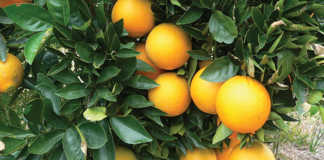
Photo: Denene Erasmus
The sellers of foodstuffs, who exploit South Africans currently under lockdown restrictions by unjustifiably hiking prices of high-demand staples, will face serious consequences, such as hefty fines and imprisonment.
The public has been urged to report price-gouging of any kind to organisations such as the National Consumer Commission (NCC) and the Competition Commission (CompCom) for further action.
The NCC’s acting commissioner, Thezi Mabuza, told Farmer’s Weekly that while price-gouging on hygiene products was initially the main problem during the early days of the national lockdown, the NCC had more recently observed a shift towards unjustifiably excessive pricing on essential foodstuffs.
This was in contravention of regulations signed into power by the Minister of Trade and Industry, Ebrahim Patel, on 19 March, only a week before South Africans were placed in compulsory lockdown to contain the spread of the coronavirus disease (COVID-19).
“[The] regulations [state] that a supplier is prohibited from increasing the prices on goods or services above the average margin or mark-up for [those] goods or services in the three-month period prior to 1 March 2020. Due to [the] lockdown, the movement of South Africans is restricted [and], therefore, consumers do not have the luxury of comparing prices. [During the lockdown] government encourages consumers to buy from their local stores,” Mabuza said.
She added that judging by complaints being received by the NCC on a daily basis, consumers across all socio-economic classes were feeling the impact of price-gouging.
However, lower-income consumers were being hardest hit by “unfair, unjust, unconscionable, unreasonable, or improper” price increases.
A statement issued by the Competition Commission (CompCom) said that allegations were being investigated that some manufacturers of protection products against COVID-19 had dramatically and unjustifiably increased their prices, by as much as 888% in one particular case.
In addition, the CompCom was also investigating reports that an, as yet, unnamed chicken wholesaler, had increased its mark-up on chicken pieces by as much as 50% with no reasonable justification.
“We’re now getting lots of cases related to alleged price-gouging on bread, eggs, fresh produce and other foods. We are tackling them as we speak,” CompCom spokesperson, Sipho Ngwema, told Farmer’s Weekly.
Dr Marlene Louw, an associate in consumer and food economics at the Bureau for Food and Agricultural Policy, said that while there were a variety of factors, such as the weaker rand and also supply and demand drivers that justified legitimate price increases on staple foods during the lockdown, these increases became exploitative when they went beyond these fundamental factors.
“We can’t expect the food value chain to operate at a loss. The regulatory framework allows for the food value chain to pass through some, if not all, production cost increases to consumers. However, most of these recent production cost increases should only filter through to consumers later this year or even early next year,” she said.
Information from both the NCC and from the CompCom indicated that contraventions of price control regulations could result in offenders being fined up to R1 million and/or being fined up to 10% of their turnover and/or being imprisoned for up to 12 months.
Read the NCC’s Consumer Alert: COVID-19 here and access the NCC’s Complaint Form: COVID-19 here.











